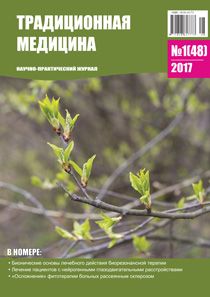Comparative research of the carboxylic acids in the plants of the Genus astragalus
Keywords:
Astragalus albicaulis DC, Astragalus glycyphyllus L, Astragalus onobrychis L, carboxylic acids, gas-liquid chromatography-mass spectrometryAbstract
Considering the important role of carboxylic acids in metabolic processes occurring in living organisms, a very important problem is to find their sources among little-known plants. For this purpose, a comparative study of a number of carboxylic acids in numerous plants of genus Astragalus. The objects of study were Astragalus albicaulis, Astragalus glycyphyllus, Astragalus onobrychis. For the first time the method of gas-liquid chromatography-mass spectrometry was used to establish qualitative composition and quantitative content of carboxylic acid in the studied plants. It was found that the carboxylic acid of Astragalus albicaulis, Astragalus glycyphyllus and Astragalus onobrychis differ from each other in quantitative content, but have a similar composition. 36 carboxylic acids were identified in the herb Astragalus albicaulis. The herbs Astragalus glycyphyllus and Astragalus onobrychis contain 37 compounds classified as carboxylic acids. These results indicate that raw herbs can be further used in pharmacy and medical practice as sources for the production of carboxylic acids and medicaments.References
1. Верещагин А.Л., Кропоткина В.В., Хмелева А.Н. О механизме ростостимулирующего действия сверхмалых доз природных органических кислот // Вестник Алтайского государственного аграрного университета. - 2010. - № 1 (63). - С.46-48.<BR>2. Говорин А.В., Филев А.П. Омега-3 полиненасыщенные жирные кислоты в лечении больных с сердечно-сосудистыми заболеваниями // Рациональная фармакотерапия в кардиологии. - 2012. - № 8. - С.95-102.<BR>3. Захарова И.Н., Суркова Е.Н. Роль полиненасыщенных жирных кислот в формировании здоровья у детей // Педиатрия. - 2009. - Т. 88; 6. - С.84-91.<BR>4. Осипенко А.Н. Жирные кислоты и их альдегиды как участники атеросклеротического процесса // Сибирский медицинский журнал. - 2012. - Т.27, №2. - С.122-126.<BR>5. Позднякова Т.А., Бубенчиков Р.А. Герань сибирская: содержание жирных и органических кислот // Фармация. - 2014. - №8. - С.13-15.<BR>6. Позднякова Т.А., Бубенчиков Р.А. Изучение дубильных веществ астрагала белостебельного (Astragalus albicaulis DC) // Традиционная медицина. - 2016. - № 3 (46). - С.42-43.<BR>7. Растительные ресурсы России: Дикорастущие цветковые растения, их компонентный состав и биологическая активность. Т.3. Семейства Fabaceae-Apiaceae. (под ред. А. Л. Буданцева). - СПб. М.: Товарищество научных изданий КМК, 2010. - 601 с.<BR>8. Сергалиева М.У., Мажитова М.В., Самотруева М.А. Биологическая активность экстрактов растений рода Astragalus // Современные проблемы науки и образования. - 2015. - № 5. - С.648.<BR>9. Сергалиева М.У., Мажитова М.В., Самотруева М.А. Растения рода Aстрагал: перспективы применения в фармации // Астраханский медицинский журнал. - 2015. Т. 10, № 2. - С.17-31.<BR>10. Терешина Е. В. Роль жирных кислот в развитии возрастного окислительного стресса. Гипотеза // Успехи геронтологии, 2007. - Т. 20; 1. - С.59-65.<BR>11. Carrapiso A.I., Carcia C. Development in lipid analisis: some new extraction techniques and in situ transesterification // Lipids, 2000. - Vol. 35. - Р.1167-1177.<BR>12. Hepatoprotective effect of syringic acid and vanillic acid on CCl4-induced liver injury / A. Itoh, K. Isoda, M. Kondoh et al. // Biol Pharm Bull. 2010. - Vol. 33(6). - P. 983-987.<BR>13. Inhibitory effect of oxalic acid on bacterial spoilage of raw chilled chicken / D.M. Anang, G. Rusul, S. Radu et al. // J. Food Prot. 2006. - Vol. 69, № 8. - Р. 1913-1919.<BR>14. Michalska M., Wasek M. Antioxidant capacities of natural supplements with high doses of vitamin C // Actual problems of creation of new medicinal preparations of natural origin PHYTOPHARM 2003: proceedings of the 7 Intern. Cong. (3-5 july; 2003; St. - Peterburg - Pushkin, Russia). - Spb, 2003. - P.491-494.<BR>15. Podmore I.D., Griffiths H.R., Herbert K.E. Vitamin C exhibits pro-oxidant properties // Nature. - 1998. - Vol. 392. - P. 559.<BR>16. Roman Merkl, Iveta Hradkova, Vladimir Filip and Jan Smidrkal. Antimicrobial and Antioxidant Properties of Phenolic Acids Alkyl Esters// Czech J. Food Sci. 2010. - Vol. 28, № 4. - P.275-279.<BR>17. The Cardioprotective Effects of Citric Acid and L-Malic Acid on Myocardial Ischemia / Reperfusion Injury / Xilan Tang, Jianxun Liu, Wei Dong et al. // Evidence-Based Complementary and Alternative Medicine. 2013. - Article ID 820695. - Р.1-11.<BR>
Downloads
Published
2017-03-30
How to Cite
Позднякова, Т. А., and Р. А. Бубенчиков. “Comparative Research of the Carboxylic Acids in the Plants of the Genus Astragalus”. Traditional Medicine, no. 1(48) 2017, Mar. 2017, pp. 39-43, http://www.tradmed.ru/index.php/tm/article/view/529.
Issue
Section
Naturopathy
License
Reproduction of any materials without the written permission of the publisher is prohibited.
The responsibility for the accuracy of the information contained in articles and advertisements are the authors and advertisers.


